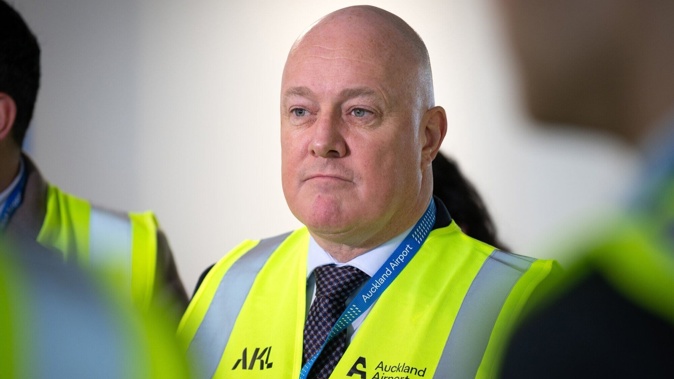
The Prime Minister says “we must be the slowest folk on the planet” when it comes to counting votes after an election, as the Electoral Commission warns legislative changes are unlikely to speed up the process.
Christopher Luxon said he expected the commission’s counting would be faster, considering the Government was progressing legislation to stop enrolments nearly two weeks before election day, rather than retaining the same-day enrolment set-up.
“You don’t just move it back two weeks and then say we’re going to stick with the same deadline,” he said on Friday.
“We’re living in 2025. I just suggest that the vote can be counted a hell of a lot faster than what we have experienced in New Zealand. Go look at other Western economies around the world and how fast they count their vote. We must be the slowest folk on the planet, I would suggest to you.
“My expectation is that they will go back and look at their processes and they will do everything they can to move heaven and earth to count the vote in New Zealand very, very quickly to ensure we have a functioning democracy that we should be very proud of, that we count votes appropriately, quickly, fast and we get a result through to the New Zealand people quickly.”
The PM repeated that he expected the commission to “count the votes fast”.
Luxon said New Zealanders were more than capable of enrolling nearly two weeks out from an election, a dismissal of criticism that removing same-day enrolment would make it more difficult for some people to vote.

Prime Minister Christopher Luxon says the commission should count votes fast. Photo / Sylvie Whinray
At a parliamentary select committee on Thursday, the Electoral Commission’s chief electoral officer, Karl Le Quesne, said it was forecast that the vote count at the 2026 election would still take 20 days, the same as it took to count votes in 2023.
That’s despite the legislation before Parliament stopping same-day enrolment. Enrolment would instead close 13 days before an election.
Le Quesne explained that 20 days would still be needed, in part because the commission was forecasting about 700,000 special votes at the next election that would need integrity checks. Anyone enrolling between Writ Day and the 13-day cut-off would be a special vote.
Labour’s Duncan Webb questioned what the point of the legislation was if the Electoral Commission wasn’t forecasting its count would speed up as a result. Le Quesne responded by saying the commission hadn’t recommended the change.
Webb told the Herald the decision to progress the legislation was made knowing it wouldn’t speed up vote counting.
“Luxon is intentionally tilting the political playing field in his favour. Making it harder for people to have their say shows how out of touch Christopher Luxon really is.
“Over 200,000 people relied on enrolling during early voting or on election day last time – and he is intentionally making it harder for them to vote.”
Webb called for the changes to be dismissed.
Labour's Duncan Webb says the changes shouldn't go ahead. Photo / Mark Mitchell
Justice Minister Paul Goldsmith, when announcing the change in July, said the legislation was intended to reduce strain on the system and warned that if no action was taken, it could take longer than 20 days in the future.
The Regulatory Impact Statement on the policy says Goldsmith had “expressed an expectation that the vote count should be able to be completed within 14 days of election day for the 2026 general election”. This had been the length before 2020.
Officials warned that it was “uncertain” whether any changes could reduce the timeframe down to 14 days “without compromising the accuracy of the results”.
However, “without change”, the officials said, the growth in special votes and a trend of later enrolments was expected to continue.
“These trends have already led to the official results being released later than in previous elections. If they are not addressed, then the current timeframes for the official count may eventually become unachievable and require further extension.”
Goldsmith, after the Electoral Commission’s comments, said advice clearly stated that one of the primary reasons for the vote count period extending from two weeks to almost three was because of the “massive increase in special votes”.
“Without changes, [this] could take even longer. Combined with other changes such as the introduction of automatic enrolment, the Government’s expectation is the Electoral Commission speeds up the vote count process over time.
“If you want to vote, you need to be enrolled. People have about a year to get organised. I have every confidence New Zealanders can manage.”
Jamie Ensor is a senior political reporter in the NZ Herald press gallery team based at Parliament. He was previously a TV reporter and digital producer in the Newshub press gallery office. He was a finalist this year for Political Journalist of the Year at the Voyager Media Awards.
Take your Radio, Podcasts and Music with you









